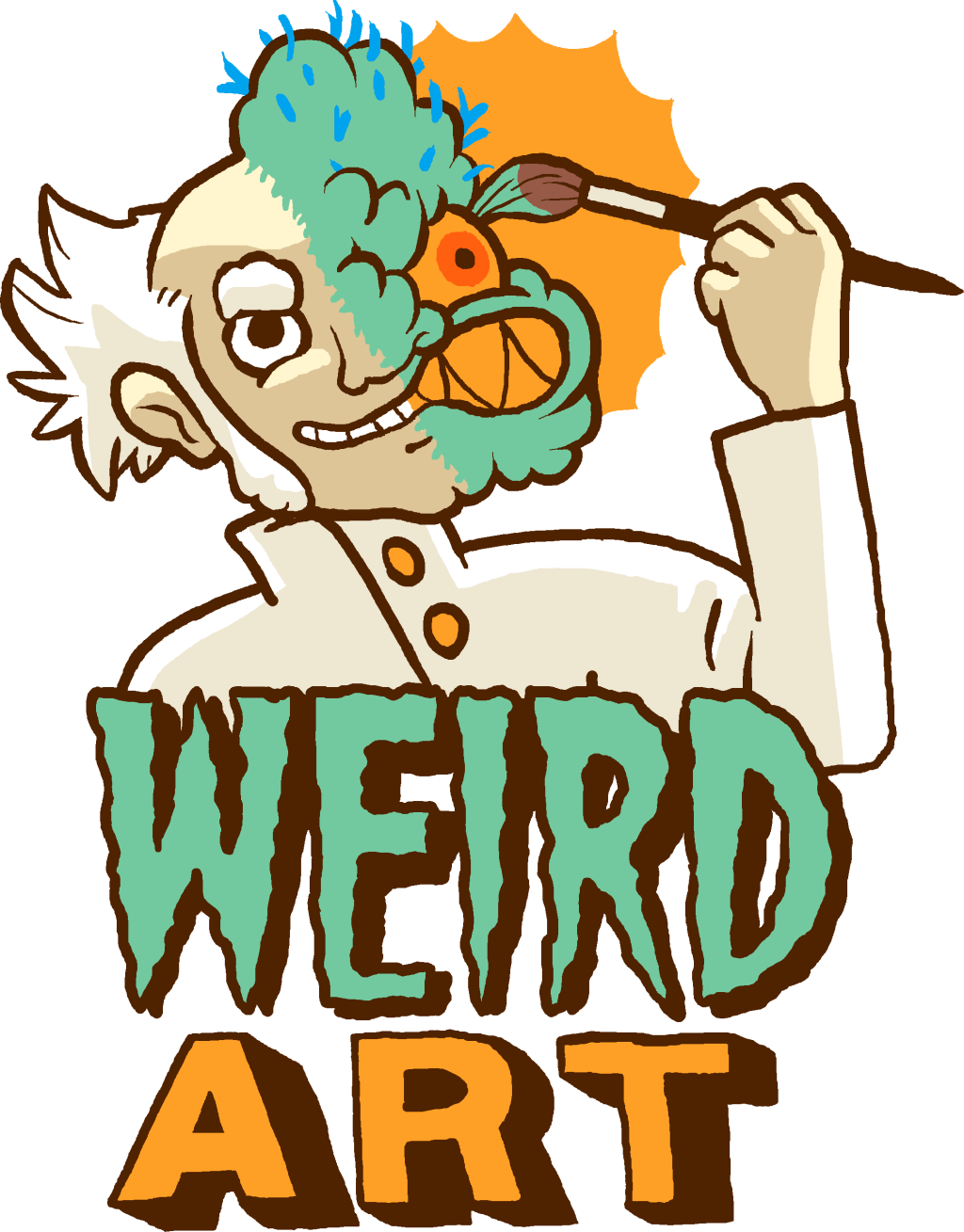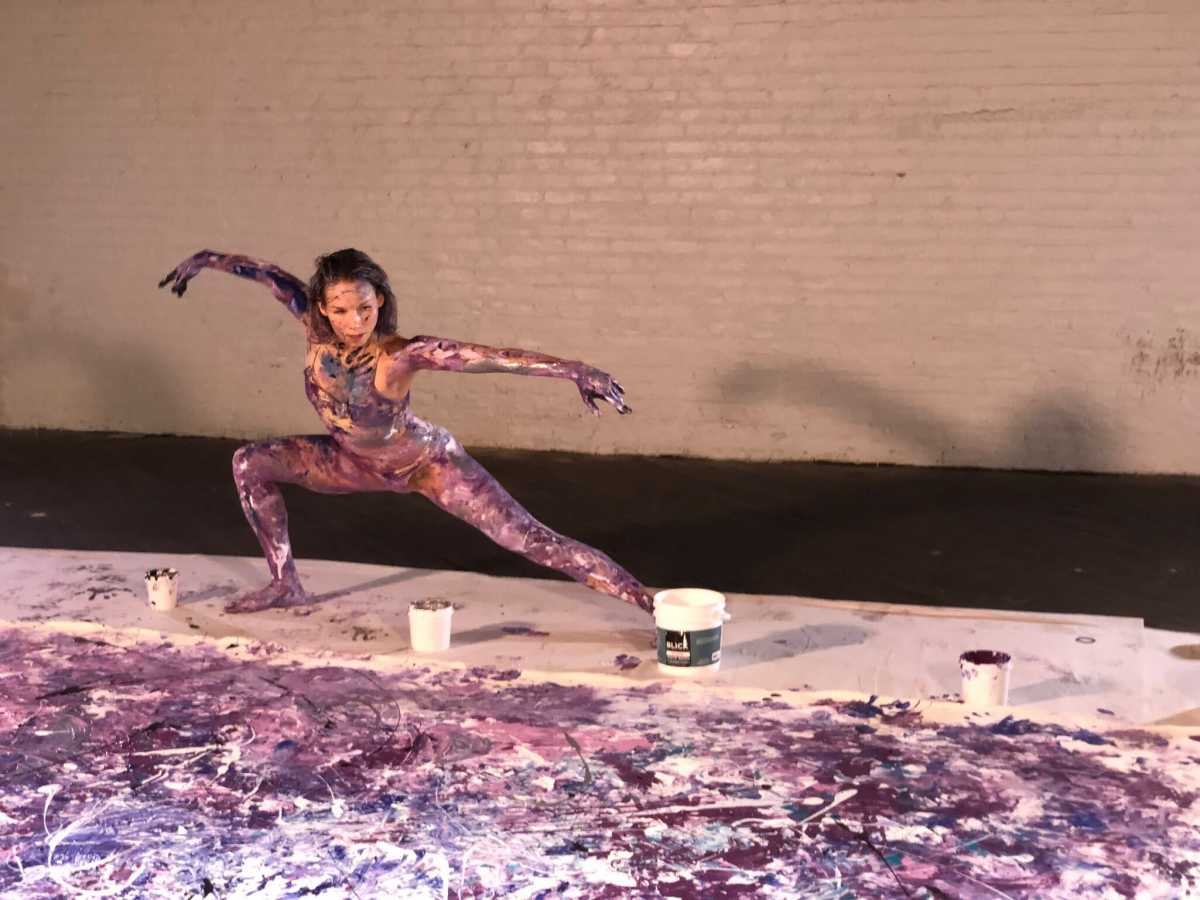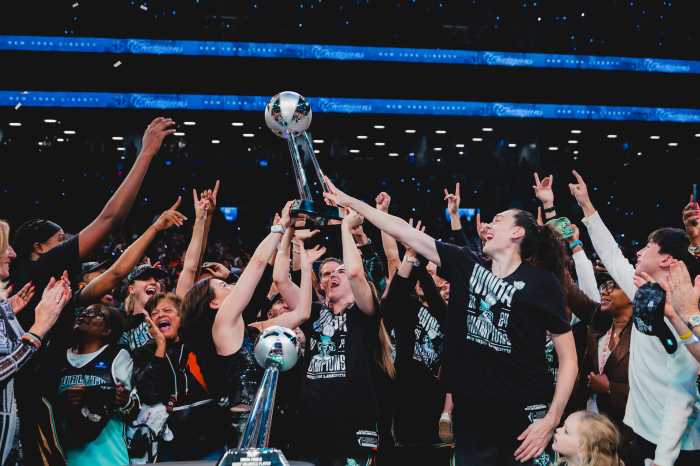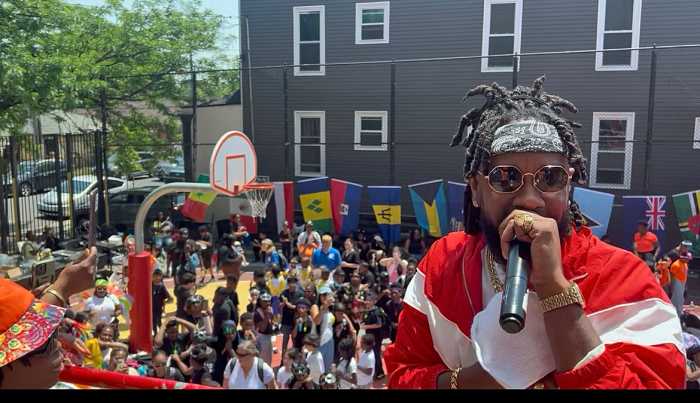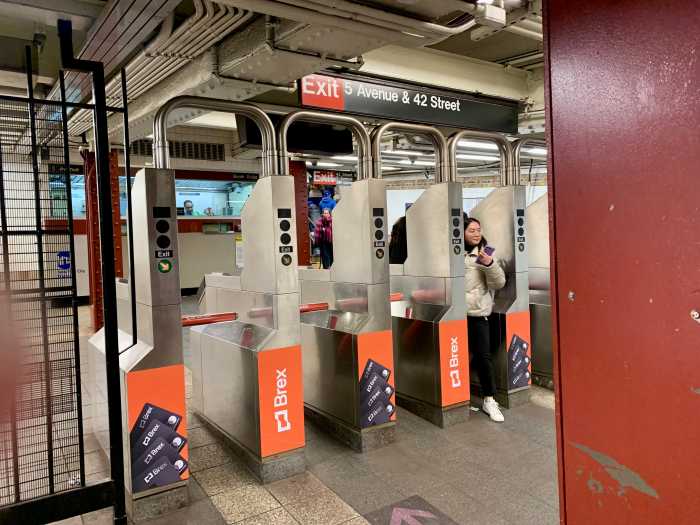A Long Island-based event planner has started organizing high-production online performances with Brooklyn artists that go beyond typical bedroom livestreams.
Late last month, event aficionado David Miller kicked off a series of virtual “parties” with Bedford-Stuyvesant artist group KooKooHaus Collective that offer audiences an interactive and personalized spectacular in the age of social distancing.
“We want to blur the line between live and virtual events,” said Miller.
The organizer put together a large-scale show for a family friend streaming live out of the sprawling nearby venue the Box Factory across the Bushwick border in Queens on April 24.
During the livestream, the quartet of artists took center stage, and the program featured vaudeville sketches, an artist painting a wall-size artwork using her own body, and a dramatic fire-show reminiscent of the Burning Man festival, according to Miller, who partnered with Emmy Award winning director and cinematographer Marc Bloomgarden to bring the project to life.
The 67,000 square-foot space allowed all of them to social distance during the shoot.
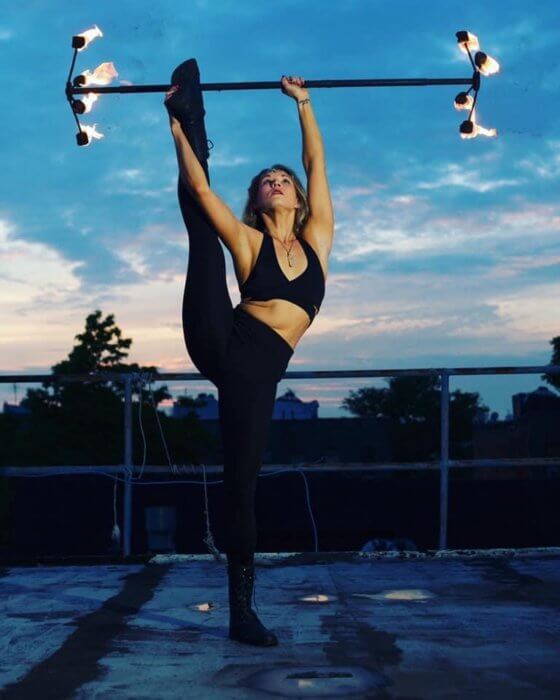
Miller said he got the idea for the new medium — and the partnership with local artists — when he organized a party for his son’s 18th birthday back in the beginning of April.
He then got in touch with the Brooklyn four-piece and hired them for a show out of their home studio near the Kosciuszko Street subway stop. He organized two more virtual events before the owner of the Box Factory gave him access to the venue.
The 30 minute to one-hour shows have been a welcome opportunity for the artists, according to one of the performers, who said that show cancellations and gallery closures have made it difficult for them to stay financially afloat during the pandemic.
“All of the members of our collective have lost our jobs with the closing of galleries and venues,” said Annika Rhea, a visual and performance artist based out of Brooklyn. “This has really been a blessing for us to have an income during this time.”
But the transition from the stage to the screen has also been an adjustment, Rhea said. For one, there is less audience reaction in a Zoom call than in front of an in-person audience.
“You’re not getting the reaction, the laughter, and the energy that is emitted off of the audience,” she said. “We are primarily stage performers. I have done some video work, but this has been a very interesting experience.”
In the four events so far, the group tailored their performances to Miller’s clients by singing a favorite song for someone’s birthday or customizing a massive painting based off of a large fish tank a viewer showed off on the video call.
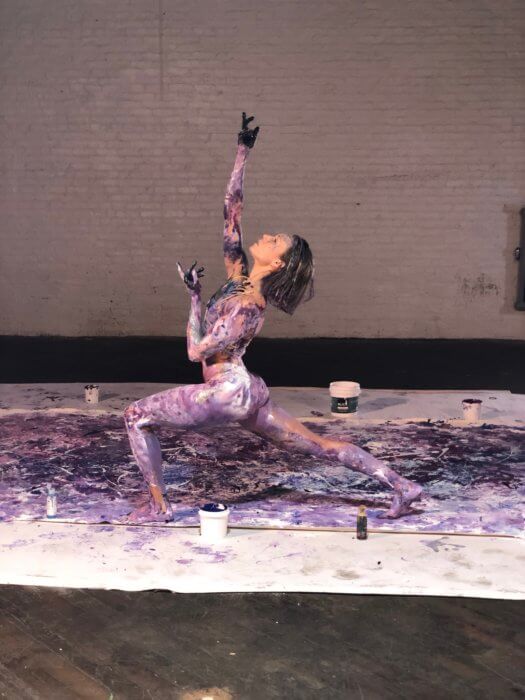
The event maker believes these kinds of personalized touches and good production value are key to moving beyond standard online shows.
“I’ve been to 100 Zoom meetings in the past month and everybody’s sitting in their bedrooms and it’s boring,” he said. “We want to use more high-end production value that gets people more involved.”
Miller said the new online model could work for artists looking to find work again during the viral outbreak, as well as for corporate events, or for more public shows.
The space’s set up allows for events that don’t require close contact and can be accessed from one’s home online — which could become more popular as Brooklynites aim to start going to events again.
“It’s going to be a long time before we get back to normal and even before that, there’s going to be a generation of germaphobes and higher standards,” said Miller, who is working to organize the group’s next online showcase.
For more information, contact info@zoomari.com.


